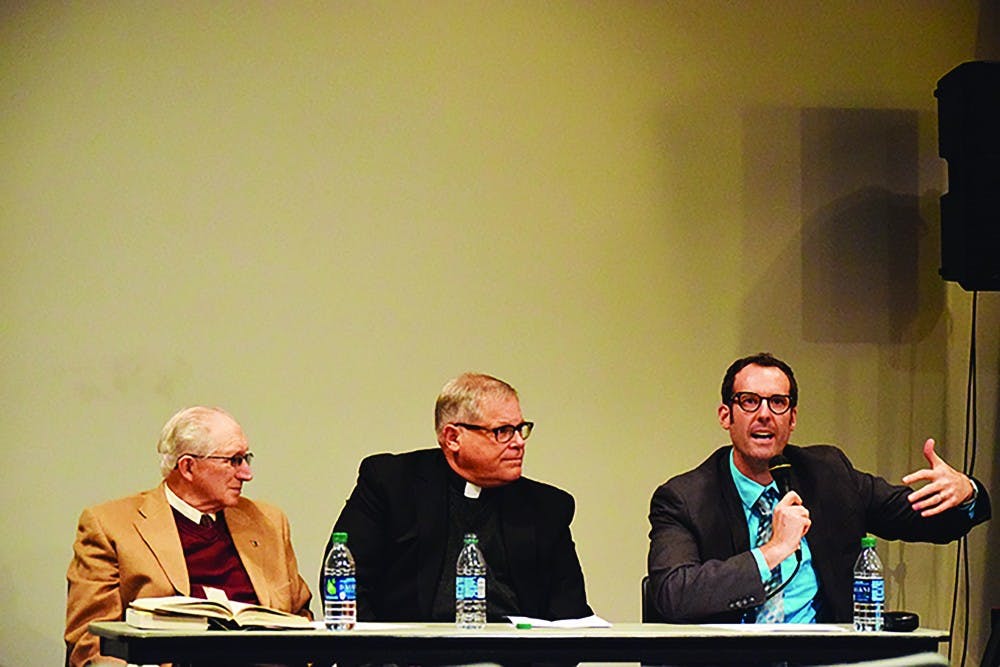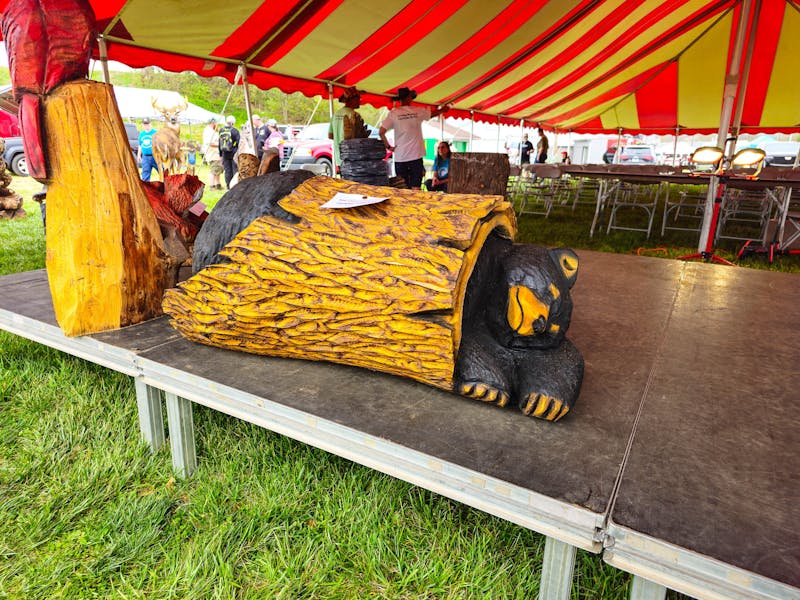On Thursday, the eve of International Darwin Day and second day of Lent, three faculty members from the Lutheran Theological Seminary at Gettysburg gathered at Shippensburg University’s Orndorff Theatre to discuss how science and religion can intersect.
One of the speakers, the Rev. Warren Eshbach, began by admitting his previous distaste for science.
Eshbach said he recalled when he went to a school meeting for his son and the teacher asked how many people do not care about science. The teacher then asked him if he shaved that morning and explained that the shaving cream he used had chemicals. Eshbach said to the audience how many people, like him, take science for granted often due to their lack of knowledge.
However, some feel too much knowledge can interfere with religion. The Rev. Mark Oldensburg said he saw a Facebook photograph that read, “The more education you get, the further you move away from God,” Eshbach added.
“There is this great disconnect…that somehow education is bad. I think we have to take a great look at that,” Eshbach said.
Both Eshbach, Oldensburg and their colleague, Aaron Smith, repeatedly reinforced the idea that science and religion are not an either or option, but can coexist together and be great partners. They said that science is there to answer the question of how, while religion asks why.
“I believe there is no conflict between science and religion, except there are miracles,” said Jim Saylor, an attendee. Saylor said he survived a motorcycle accident and recovered much quicker than the doctors anticipated.
Saylor used to teach science but never included religion in his curriculum because of the politics of it.
Oldensburg brought up the point that the Bible is not a textbook and should be interpreted properly in the right context.
“Genesis one wasn’t created to answer the question why earth was created,” Oldensburg said. “Genesis one was written to answer, ‘Why are there weekends?’”
Eshbach continued the discussion and said the Bible was not created to let people know whether the Earth was created in seven days or much longer, but to let people be in awe of His creation, audience member, senior Kayla Keller said.
“I can’t look at science and not see God,” Keller said.
Eshbach, Oldensburg and Smith collectively believe in evolution.
“Evolution isn’t something you believe in, it’s a way of life…life is about evolvement,” Eshbach said.
“I don’t mind the big bang as long as God is doing the banging,” said Ian Langella, an SU professor of supply chain management.
Lutheran Theological Seminary at Gettysburg received The American Association for the Advancement of Science grant in fall of 2014. This year the seminary added a new class called, “Introductory of Worship,” which focuses on the neurological aspect of music, taught by Oldensburg. The seminar added two other classes, “Pastoral Care,” which focuses on the relationship between genetics and cancer, and “Introductory to the Old and New Testaments.”
“My challenge to the church is to help people see the greatness of God and to take God out of the belief system,” Eshbach said.




The Slate welcomes thoughtful discussion on all of our stories, but please keep comments civil and on-topic. Read our full guidelines here.